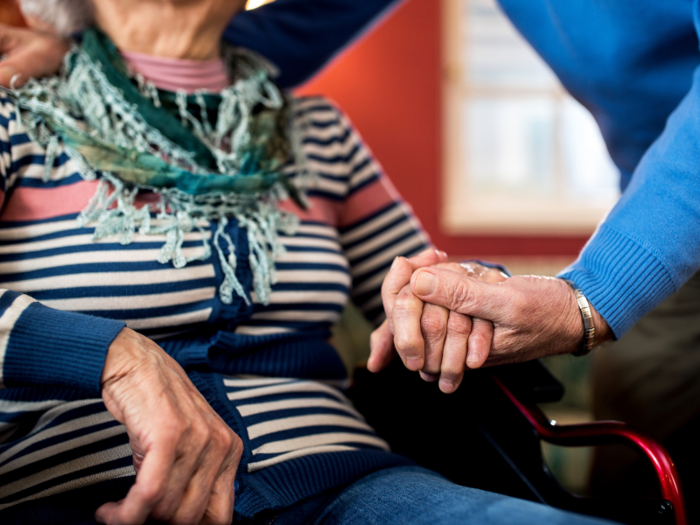- Home
- slideshows
- miscellaneous
- 7 physical and psychological changes that happen when you fall in love
7 physical and psychological changes that happen when you fall in love
Being in love can lower your blood pressure.

You may feel more or less stressed than usual, depending on the stage of your relationship.

Falling for someone may be stressful in the beginning — there's uncertainty about whether they feel the same way, the possibility of rejection, and anxiety about when to say those three big words.
The initial stages of falling in love increase levels of cortisol, a hormone associated with stress, in new couples, according to a small study published in 2004. However, when the participants were tested 12 to 24 months later, their cortisol levels had returned to normal.
Though love can be stressful for some — especially in the early stages — it can potentially lower stress in the long run. A study published in 2005 in Neuroendocrinology Letters examined the neurobiology of those in love and found an association between people's stress response systems, known as the HPA axis activation, and the development of social attachment. The results suggest that forming a bond with your partner could help bring about physiological changes that reduce levels of anxiety.
You feel more attached and safe.

One reason why you feel less stressed may be because being in love makes you feel safe and develop trust towards your loved one.
Oxytocin, a hormone released through physical contact like hugging, kissing, and sex, deepens feelings of attachment towards your partner and produces sensations of contentment, calmness, and security, according to a Harvard Medical School report.
Oxytocin also plays a role in social bonding, maternal instinct and reproduction, and sexual pleasure. The “love hormone” substantially increases social attachment and trust among partners, according to a study published in Nature.
You get “butterflies” in your stomach.

Have you ever felt your heartbeat speed up, palms sweat, or stomach churn (in a good way) at the sight or thought of someone you love?
When in love, cortisol levels increase and the body goes into fight-or-flight mode.
“Your limbic or emotional brain activates the vagus nerve that goes from the brain to your gut,” Dr. Daniel Amen, psychiatrist and neuroscientist, told NBC News. "When you get nervous, or when you get excited (as I explain to my patients, it's the same feeling, but it depends on your interpretation of it) this nerve is stimulated that activates the gut."
You become happier.

Being in love releases dopamine, a neurotransmitter that controls the brain's reward and pleasure center, which makes couples feel happy around each other.
In 2005, a study published in The Journal of Comparative Neurology scanned 2,500 brain images of 17 individuals who self-identified as being in love. Researchers found that participants who looked at a photo of a person they romantically loved showed brain activity in two areas highly associated with dopamine: the caudate nucleus and ventral tegmental area.
You feel less pain.

Being in love has been shown to have pain-reducing qualities, although most doctors wouldn't recommend relying solely on love after, say, a serious surgery or injury.
A 2010 study published in the journal PLoS ONE took fMRI scans of participants in new romantic relationships. The researchers found that people who viewed images of romantic partners had increased activity in several reward-processing regions in the brain, suggesting that love (and distraction) may reduce the experience of pain.
"When people are in this passionate, all-consuming phase of love, there are significant alterations in their mood that are impacting their experience of pain," Dr. Sean Mackey, senior author of the study, told Stanford Medicine News Center.
You can feel addicted.

Like addictive drugs that light up our pleasure centers and keep people coming back for more, love can be addictive in its own way.
Scientists have observed overlapping neurochemical responses in the same areas of the brain among people experiencing drug addiction and love. A 2017 study published in the journal Philosophy, Psychiatry, & Psychology reviewed research about the relationship between addiction and love. The authors suggested that love can be addictive because it's a need that can be temporarily satisfied but can become very distracting if it's not fulfilled for a long period of time. (Official medical classification guides do not include love as an addiction, however.)
Some of these feelings may have to do with sex — sexual activity, orgasms, and some drugs all release dopamine in an area of the brain called the nucleus accumbens. An orgasm's rush of oxytocin and serotonin, along with muscular relaxation, can leave you craving more. That's why it might feel like engaging in sexual activity can give you a rush.
Popular Right Now
Popular Keywords
Advertisement